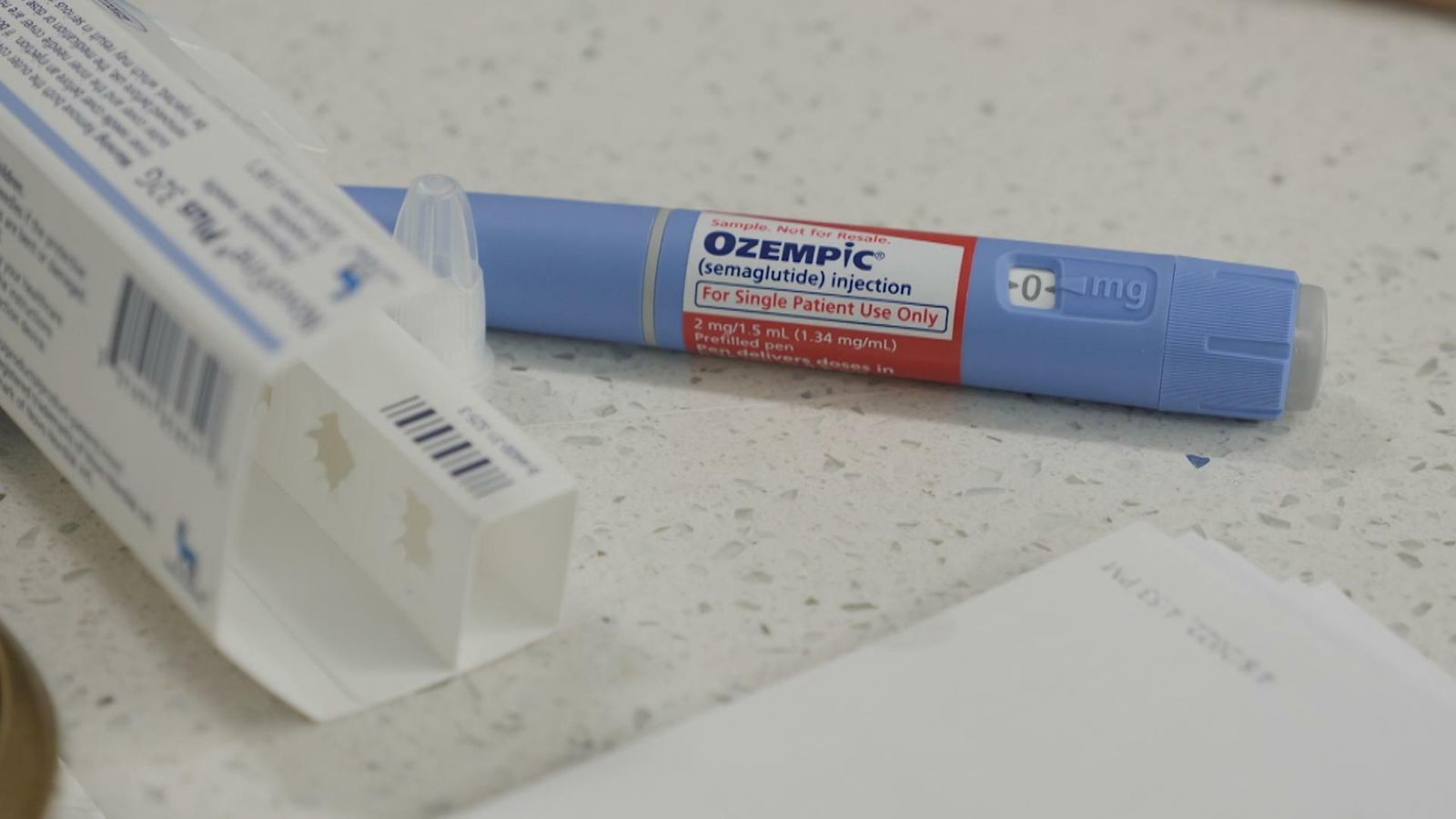Two drugs used as diabetes and weight-loss treatments are being investigated after some patients reported having suicidal thoughts.
Both Ozempic and Saxenda are being investigated by the European Medicines Agency (EMA), after Iceland’s health regulator flagged two cases of Ozempic patients having suicidal thoughts and one on Saxenda thinking about self-harm.
Ozempic, which contains the active ingredient semaglutide, was designed as a diabetes treatment but has gained popularity as a “miracle” weight-loss aid.
It is produced by Novo Nordisk, the Danish drugmaker. Shares in the firm fell by 1% on Monday following news of the investigation, Reuters reported.
Novo’s earlier and less effective weight-loss drug, Saxenda, is also an injection that suppresses appetite.
It contains liraglutide and in the UK is available on prescription as a part of a weight management plan.
Novo Nordisk said patient safety was its top priority and it treated all reports about adverse events very seriously.
Its safety monitoring had so far found no “causal association” between the self-harming thoughts and the drugs, it said in a statement.
Suicidal thoughts are not listed as a side effect in the EU product information for either drug.
But in the US, prescribing instructions for Wegovy – which also contains semaglutide – say patients should be monitored for suicidal thoughts or behaviour.
The warning is there because of risks associated with other weight management drugs, rather than because drug trials suggested an increased risk of suicidal behaviour, the US Food and Drug Administration (FDA) said.
Read more:
Next wave of weight-loss jabs could be coming – without the side effects
Obesity patients feel like ‘second-class citizens’ as Ozempic demand soars
There have been at least 60 reports of suicidal thoughts in patients on semaglutide since 2018, according to the FDA’s Adverse Event Reporting System (FAERS).
At least 70 reports of suicidal thinking in users of liraglutide have been made to the FAERS since 2010.
Information in these reports has not been verified and a report is not proof of causation, the FDA said.
The EMA said it would consider whether its review should be extended to other medicines that regulate appetite by mimicking a gut hormone, known as GLP-1 receptor agonists.

